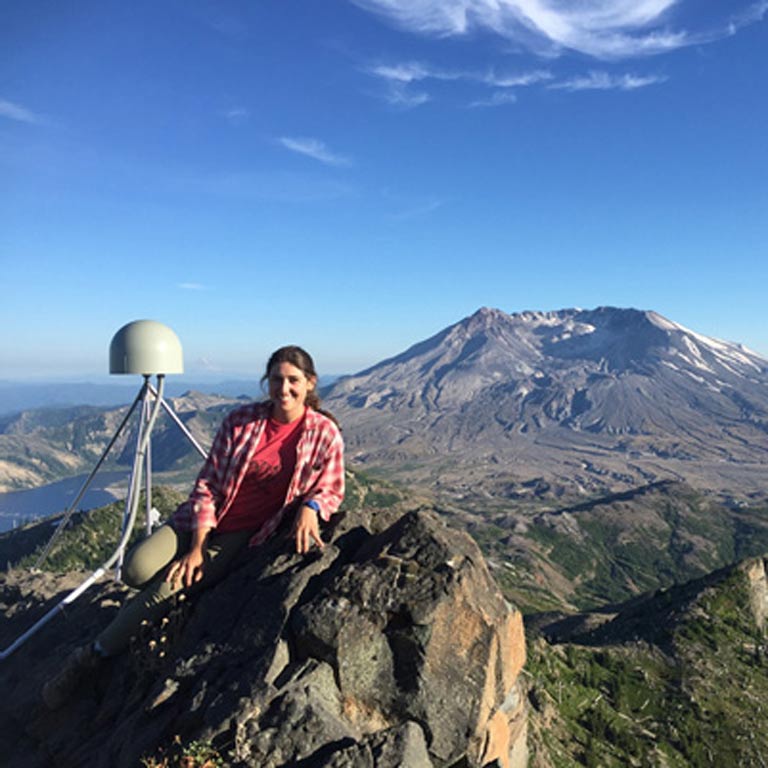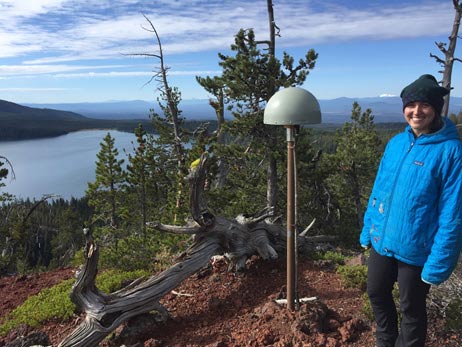What drew you into the Earth Science major?
I signed up to take an introductory geology class my first semester of freshman year (while I was at the University of Vermont) and chose to do so in part because I never had any previous experience with geology or the earth sciences as a class subject. This curiosity of the “unknown” was also paired with the fact that I had recently taken up rock climbing and was spending time outside on fascinating geologic formations that I wished to know more about. After my first geology class I was hooked! I loved that all my Earth Science classes at IU included ways to get hands-on experience with what we were learning in the classroom in the form of field trips, applied projects, and scientific conferences/meetings.
What topics were you most excited to learn about in Earth Sciences classes?
I had the great opportunity to take a wide range of earth science courses and discovered that some of the most interesting topics to me were mineralogy, geological hazards, structural geology and geomorphology.
What has been the most interesting/influential experience you have had as a major?
One of the most influential experiences I had as a major was taking the course G429: Field Geology in the Rocky Mountains at the Judson Mead Geologic Field Station in Montana. This course challenged me both mentally and physically, but allowed me to develop vital problem solving and time management skills. I gained a better understanding for the scale of morphologically changing systems through time, something I believe you can only achieve by stepping outside of the classroom and experiencing the geology first hand. By taking this course, I ultimately grew to be a more confident geologist and discovered a passion for working hands-on in the field.
What advice would you give to new students in the major?
I would highly recommend joining a geoscience-based club, it helps connect you to other students in the major, including upperclassmen, who can act as great mentors. Some of the clubs I was involved with include GeoClub and Sigma Gamma Epsilon. Also, take advantage of learning key research tools such as ArcGIS, Python, or other modeling programs.




 The College of Arts
The College of Arts